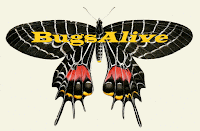C h a r a x e s b e r n a r d u s
This page has now been updated - Click Here to View
Common Name:
Taxonomy:
Morphology:
Sexual Dimorphism:
Distribution:
Flight time:
Habitat:
Life History:
Voltinism:
Larval hosts:
(all locations)
Adult food sources:
(all locations)
Photos:
(click to enlarge)
the Tawny Rajah Photos at the bottom of the page
Arthropoda - Insecta - Lepidoptera - Nymphalidae - Charaxinae - Charaxes - bernardus (Fabricius, 1793)
wingspan - 70-80mm, wing colour - brown/yellow/white, eye colour - yellow, proboscis colour - yellow, antennae colour - black w/orange tips, abdomen colour - yellow/brown, leg colour - yellow/white, flight -fast
the male is polymorphic with several different forms, female is monomorphic
India, Nepal, Bhutan, Bangladesh, Myanmar, Thailand, Laos, Vietnam, China, Malaysia, Indonesia, Philippines
January to October (depending on location)
rainforest and humid deciduous forest, usually near streams.
¦¦ egg 3 days ¦¦ instar1 6 days ¦¦ instar2 6 days ¦¦ instar3 6 days ¦¦ instar4 6 days ¦¦
¦¦ instar5 10 days ¦¦ pupa 12 days ¦¦ Total egg-adult 48-50 days. All times approximate.
multivoltine
Cinnamomum camphora, Cinnamomum inunctum, Cinnamomum ssp., Litsea glutinosa, Litsea populifolia, Phoebe chekiangensis (Lauraceae), Acronychia laurifolia, Acronychia pedunculata (Rutaceae), Adenanthera pavonina, Adenanthera ssp., Albizia falcata, Albizia lebbeck, Dalbergia latifolia, Tamarindus indica, Tamarindus ssp. (Fabaceae), Aglaia elaeagnoidea, Aglaia lawii (Meliaceae), Miliusa tomentosa (Annonaceae)
Actual host plant used depends upon location and availabilty of plant species.
Nectar: this species is not known to feed on nectar
Other: mud puddling, carrion, tree sap, animal dung, over-ripe fruit








